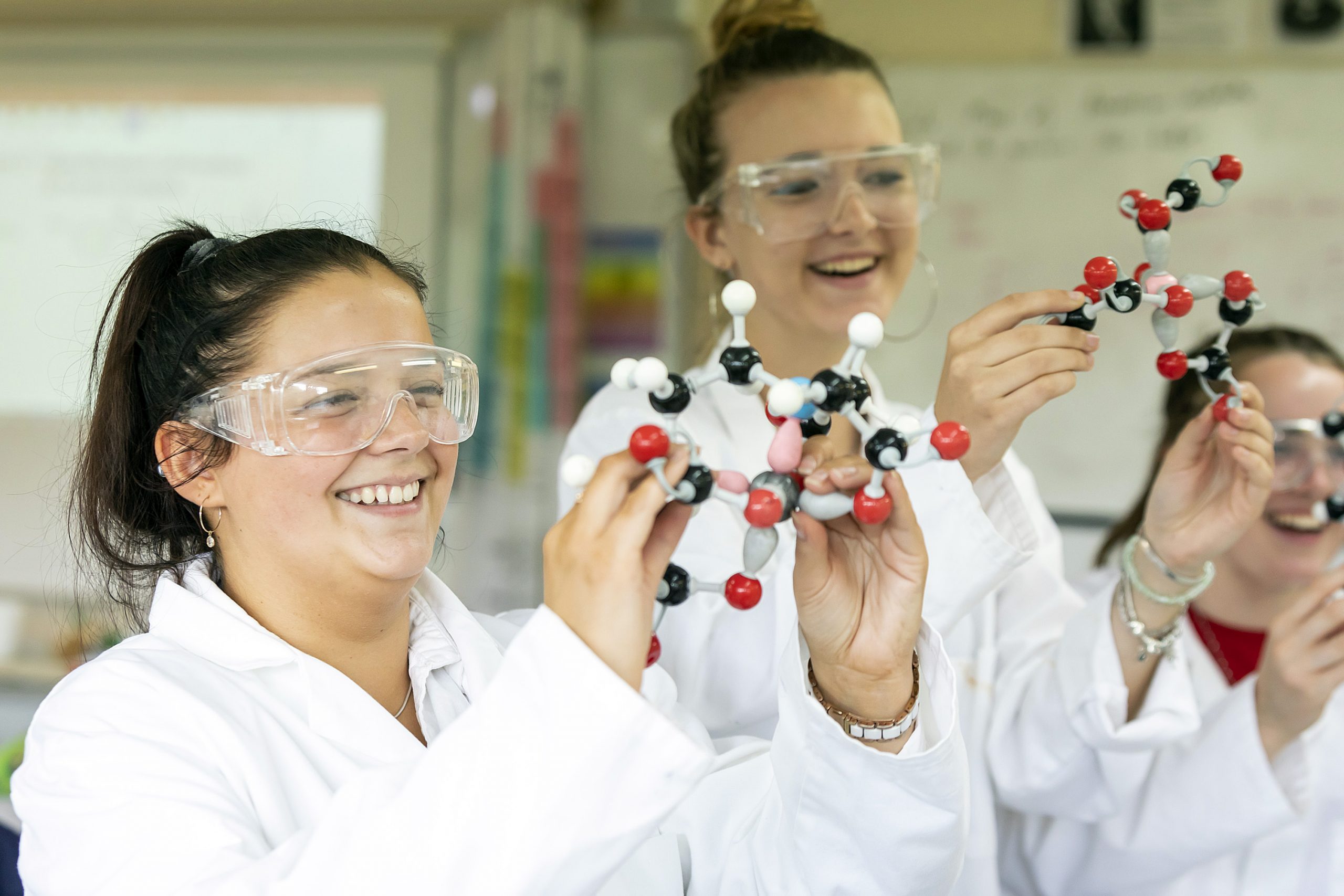Five GCSEs at grade 9–4, including a grade 6 or above in Maths and Chemistry. BTEC Level 2 qualifications considered in subject related courses

A Level Chemistry will allow you to develop an understanding of how chemists seek to utilise the world’s natural resources to provide the food, products, medicines and energy sources required in everyday life.
You will build on your GCSE knowledge and develop further understanding of how chemists seek to utilise the world’s natural resources to provide the food, products, medicines and energy sources required in everyday life. Approximately one third of the course is practical based where you undertake a wide variety of experiments from determining energy gaps in atomic orbitals through to synthesising and testing a penicillin drug.
Five GCSEs at grade 9–4, including a grade 6 or above in Maths and Chemistry. BTEC Level 2 qualifications considered in subject related courses
1st Year Topics
Elements of Life
Developing Fuels
Elements From The Sea
Ozone Story
What’s In a Medicine?
Overview of Second Year Topics
Three Exams at The End of 2 Years
A Level Chemistry can lead to careers in Chemical Engineering, Bio-chemistry, Veterinary Nursing, Forensic Science and Medicine. Even if you chose not to follow a scientific career a Chemistry A level is widely respected across all disciplines.
Seaside chemistry field trip extracting iodine from seaweed. Trip to London’s Science Museum for a bespoke A Level Chemistry treasure hunt. Chemistry in Action trip to the University College London for relevant A Level Chemistry lectures. Royal Society of Chemistry “Spectroscopy in a Suitcase” visit to Andover. Students can analyse samples that they have synthesised throughout the course on cutting edge laboratory equipment.
Your learning will take place in our well-equipped laboratories combining both practical and theory-based lessons. Small class sizes (Maximum 16 but typically 10). Extra timetabled sessions are provided to enable a practical rich course. Practical sessions take place in pairs. Typically, you will spend about 30% of the class time undertaking practical work.